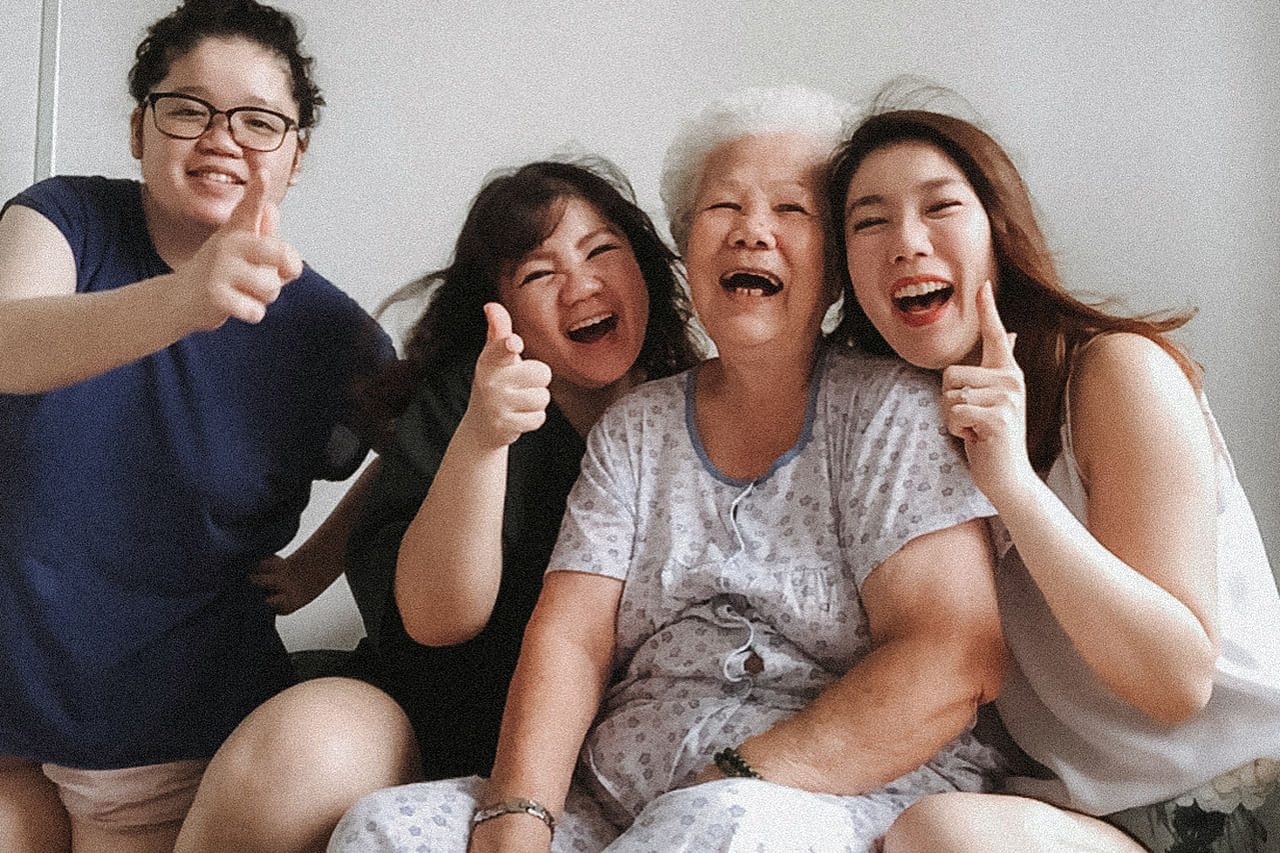COVID-19 SPECIAL
Passion projects thrive at home: Art, virtual choirs and FaceTime photography
Sign up now: Get ST's newsletters delivered to your inbox

PHOTOS: HO MING XIA, REZA HASNI, PIXIOO, ENG JIA LING
SINGAPORE - Photographs often make the best souvenirs, but when Ms Ho Ming Xia spots a beautiful scene abroad, she pulls out her sketchbook and draws it instead.
So it was only natural that, even while stuck at home because of the coronavirus, she began seeking new vistas once more.
A month ago, she embarked on a project called The Window Experiment, sketching and painting window views from photos taken by friends in Singapore and around the world.
More than a month into the circuit breaker period aimed at reducing coronavirus infections, many in Singapore have turned to passion projects to stave off cabin fever.
Some draw, paint or take photos, while others sing in virtual choirs - a new type of music gaining traction around the world.
In a time of stress and isolation, making art can be cathartic, says Ms Dorothy Lim, a programme specialist from the Singapore Association for Mental Health Creative Services. "The creative process fuels individuals' imagination and provides them hope beyond the four walls of their homes or their situations."
LEARNING NEW SKILLS
Ms Ho, 25, who works as a project manager for hostel chain Draper Startup House, got the idea for The Window Experiment while watching the sunset at Labrador Park about a week before the circuit breaker measures kicked in.
"When passers-by saw my friend and I appreciating the view, they also slowed down to look. It sparked the idea of how I can rediscover curiosity in Singapore," says Ms Ho, adding that her sketches help people see familiar surroundings with fresh eyes.

The project also lets her practise skills such as watercolour painting, of which she is less confident.
"Although I feel that my drawings look better as a sketch, in black and white, I wanted to gain a better grasp of how to mix colours and recreate the colour palette I picture in my head," says Ms Ho.
She has done 44 ink and watercolour paintings so far, taking between 10 and 40 minutes for each one.
Ms Teo Xin Yee (@xin.illus), who graduated in January this year with a business administration degree from the National University of Singapore, has also taken the chance to hone her drawing skills.
Although she had dabbled in illustration before, it took a backseat to other interests such as rock climbing.
But, with time on her hands during the circuit breaker, she has challenged herself to draw something new every day.
The 24-year-old will start a marketing job in July. For now, drawing every day offers structure to her routine.
"It helps me feel productive and at the end of the circuit breaker, at least I'll have something to show for my time," she says.
ART ACROSS BORDERS

With people around the world stuck indoors, there is no better time for cross-border collaborations.
Full-time artist Reza Hasni (@reza.hasni), who usually does illustrations and motion art, is working with a sound designer in Greece, an illustrator from Indonesia and a local Web developer for his first virtual reality (VR) exhibition, which will take place online next month.
Titled Centre for Altered Togetherness (c-a-t.world), it will showcase digital drawings in Reza's signature psychedelic style, brought to life by interactive studio Screensavers.
The exhibition aims to bring viewers into pockets of Reza's mind and explore alternative worlds to escape reality.
The show may sound unconventional, but Reza says it is based on the current global situation of isolation.
"Since we are all experiencing the same thing in different countries, we decided to collaborate. I enjoy working together, trying something new, figuring out how to meet and share ideas online," says the 38-year-old.
Reza, who splits his time between Singapore and Berlin, was inspired by virtual exhibitions in the German capital last year.
Even before the pandemic, artists were already using them to reach a wider audience.
"Unlike illustrations or murals, VR lets me showcase work in a new way. It is more experiential and there are many possibilities in this area," he says.
Meanwhile, Ms Eng Jia Ling, 29, who is head of business at education technology start-up Tueetor, has caught up with former bandmates with whom she performed while on student exchange in Rotterdam, in the Netherlands, in 2013.

She plans to duet with a Brazilian friend on the acoustic guitar, and to experiment with electronic sounds and instruments with another in Poland.
Ms Eng has also reconnected with former schoolmates, singing in two virtual ensembles comprising alumni from the Victoria Junior College (VJC) choir.
One was an eight-member rendition of Italian protest folk song Bella Ciao, which was featured in Netflix's hit drama series Money Heist.
Another was a rendition of VJC choral anthem No Man Is An Island, sung by more than 100 members from the choir's 30-year history.
Ms Eng says: "Singing as a group, you feel more confident because there are so many people supporting you, while recording alone is a bit scary.
"You have to be more precise with the tempo, hitting the right notes and coming in on time. But when the song comes together, it sounds so full.
She adds: "We are joyful listening to the songs and I hope people will be too."
CAPTURING MEMORIES

clart17 - Evelyn Kaylene Credit to Pixioo
PHOTO: Pixioo
For some, the pandemic has offered a unique opportunity for family time - and a chance to capture these memories for posterity.
When her grandmother, Madam Chiang Ah Loi, turned 86 last month, marketing manager Evelyn Kwong, 29, sought photographer Samuel Ng for a photo shoot via video conferencing app FaceTime.
In previous years, the extended family had gathered at restaurants for the matriarch's birthday.
Ms Kwong, who did the shoot with her grandmother and two sisters aged 27 and 23, says: "Even with the circuit breaker, we still wanted her to have a special day. We've been wanting to do a family photo shoot, but scheduling has been a problem until now, when everyone is at home."
All of them were new to the concept of a virtual shoot, but Mr Ng broke the ice, cracking jokes and chatting with Madam Chiang in Mandarin.
The 29-year-old photographer, who founded home-grown photo studio Pixioo (@Pixioo), says getting subjects to relax is even more important when shooting through a screen.
"I try to bring out emotions so subjects will be more natural," says Mr Ng, who has photographed families with infants and pets, couples, and a mother-daughter pair.
When shooting couples, for instance, he plays games over the call, such as quizzing them on each other's likes and dislikes, to get them to loosen up.
He also encourages subjects to do an activity with which they are comfortable, such as exercising or cooking together.

Mr Ng launched virtual shoots last month and has since conducted about 15 of them.
Each one lasts from 45 minutes to an hour and costs $100.
To work around the lower resolution, he opts for a grainy or black and white edit, which he says captures the bittersweet nature of the circuit breaker.
"The idea is to bring back the old-school film look, with a sense of melancholy. During the circuit breaker, people feel happy yet sad at the same time.
"You may not be used to staying home so much, but you get to spend a lot of time with your family," says Mr Ng, who is married with two sons aged seven and two.
For Ms Kwong, these months at home are extra special.
She will be moving out later this year into a new Housing Board flat with her husband, 30, who runs Ming's Prawn Noodle, a stall in Alexandra Village Food Centre.
The couple got married this year, but have been living apart during the circuit breaker period.
Says Ms Kwong: "For all of us to be home together every day is very rare. The circuit breaker has given us time to enjoy the simple things like eating breakfast as a family. These photos will remind me of that."


